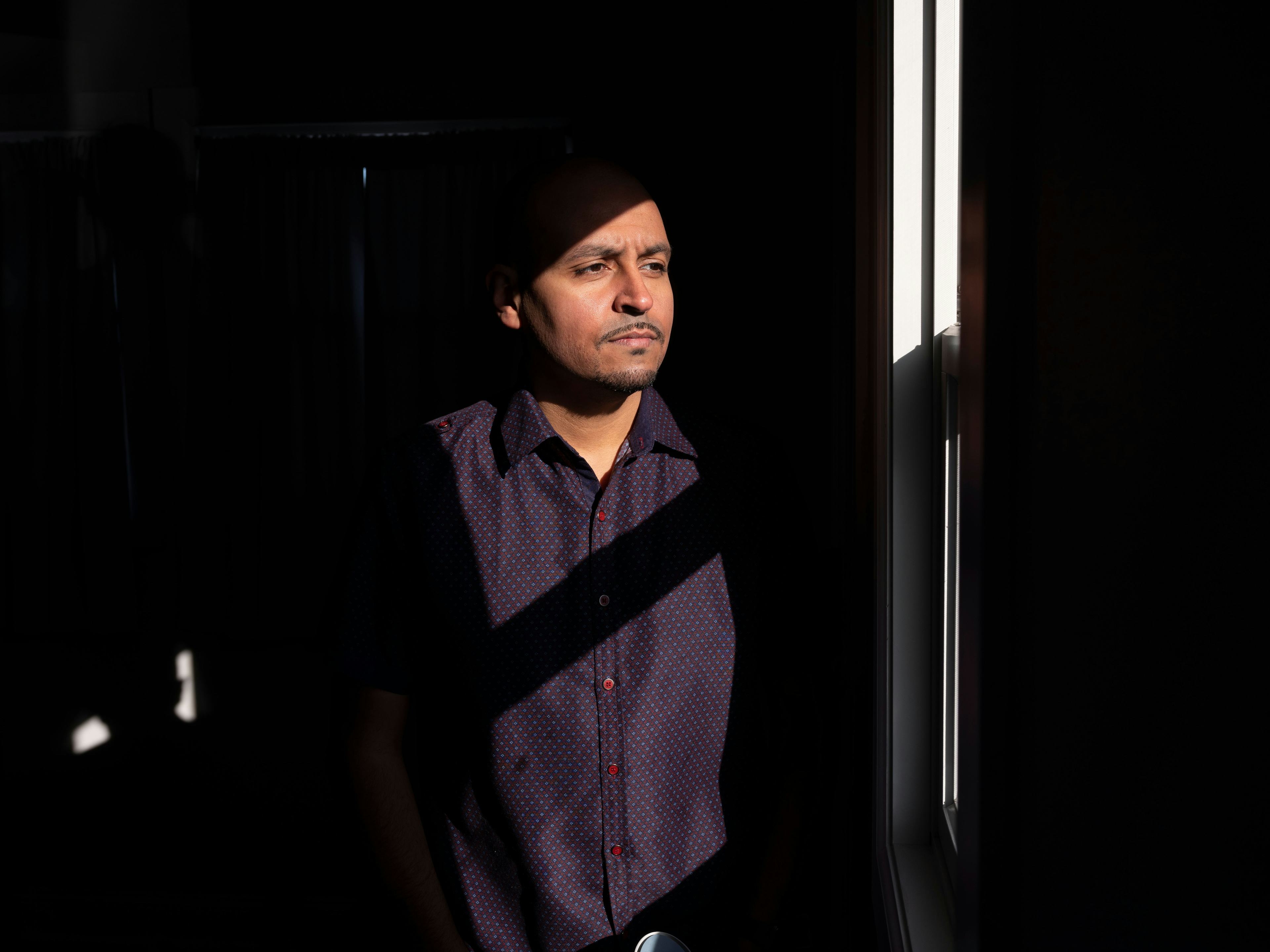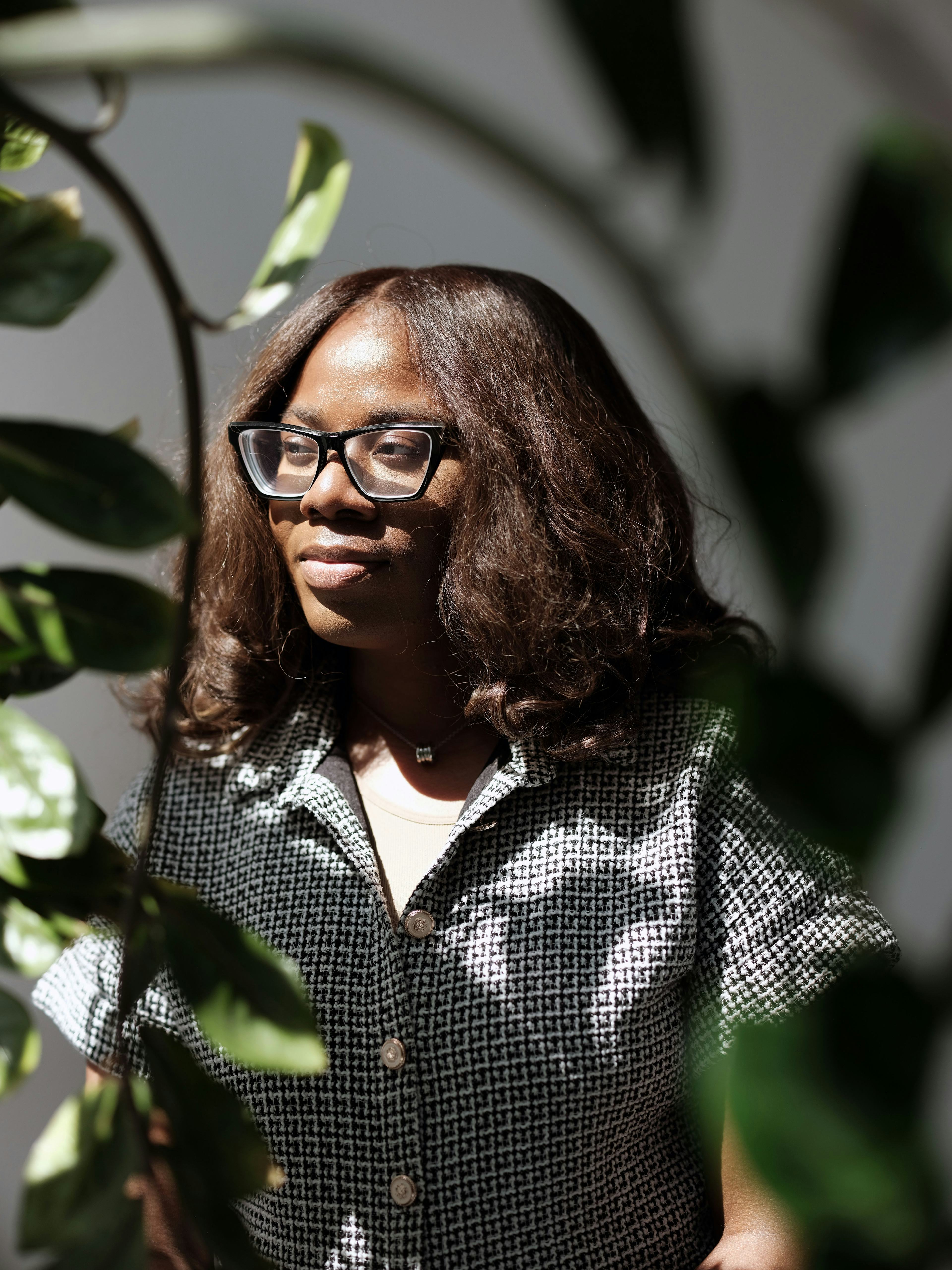March 2022
__________
For his whole life, Rook Soto had dreamed of pursuing a career in law enforcement. As a young boy growing up on a farm in Puerto Rico, his heroes were always the cops and lawyers he saw on TV. During the 1980’s in the south Bronx where he spent the remainder of his childhood, he saw firsthand how crack and cocaine destroyed the lives of so many people, including both of his parents. Growing up around drugs, crime, and violence had inspired him to pursue what he perceived as a noble profession.
So when Rook finally landed a job in law enforcement, he felt that his lifelong dream had come true. All of his efforts—the three times he went back to college to get his criminal justice degree, the multiple jobs he had to keep to pay for his education, and the increasing stress and responsibility of raising his two kids while studying—seemed worth it.
But just one-month post-offer, Rook’s right eye started to get blurry. He continued to lose vision until he went completely blind in that eye.
Rook was eventually diagnosed with multiple sclerosis, a neurological disease whose symptoms include loss of motor control, problems with speech, and a loss of vision. Although it can be treated with medication, MS does not have a cure, and attacks can occur without warning. As a law enforcement officer, Rook’s primary job responsibility would have included supervising convicted offenders and would have required him to carry a gun. Because his recently discovered medical condition created a potentially dangerous situation, Rook was deemed unfit for duty.
At 30 years old, Rook found himself with a degree he couldn’t use, college debt he couldn’t afford to pay, and a family he needed to support. Without any other job prospects, Rook took whatever odd jobs he could find: working for a storage company, delivering food, sales at a car dealership—all the while barely breaking minimum wage. For some time, Rook ended up homeless, living out of the van he used for deliveries. He eventually found a stable job at a hospital, but his role was digitizing paper medical records, a job designed to be phased out upon completion of the task. As Rook described, “My job was to work myself out of a job”. With a limited time horizon, he knew he had to find a new job and set out to find a long-term solution, particularly one that provided a better income and increased job security.

Rook and his oldest son Rafael just before being diagnosed with MS.
He had heard about coding programs that trained non-technical people into software engineers. Rook started to do his research and found that the options were plentiful. But one, in particular, stood out—an organization called Pursuit that not only served individuals from low-income backgrounds but had just launched a model called Pursuit Bond that provided their training with no upfront cost. Instead, they asked for a percentage of future earnings only if the participant obtained a job above a minimum threshold.
Rook still had college loans and the concept of borrowing additional money for a program that might not result in a job was not feasible. After attending an info session, he learned that their participants went from making $18,000 to $85,000 on average. Rook was skeptical at first, but after speaking to previous graduates who had made the career change and earned the income jump, he was all in.

Rook presenting his capstone project at Demo Day in 2017, hosted at Google HQ
Pursuit offered structure, accountability, networks, and community, all of which Rook describes as being absolutely essential to his success. After completing Pursuit, Rook landed his first software engineering job at a dev shop. Rook couldn’t have timed it more perfectly: he accepted his job offer only a few days before his hospital job came to an end. And much to his surprise, his starting salary was exactly $85,000.
With this increased salary, Rook was able to finally start to provide a better life for his family: “Life became easier almost immediately. We were paying the rent with no problem. We were going out to eat. And we were saving up to buy a house which I never thought would happen.”
Grateful for this transformation, Rook was happy to contribute a percentage of his salary for the Pursuit Bond. Each monthly payment was his way of thanking Pursuit for creating a pathway to economic stability and a reminder of the financial success he has achieved. While Rook completed his Pursuit Bond payments just a few years later, he is still working towards paying off his college loan debt. “Pursuit produced outcomes for me and I was excited to pay the Pursuit Bond,” Rook reflected. “College, not so much.”



Rook has continued to build his career as a software engineer—he has since worked at WW, Starbucks, and is now an engineer at a Fortune 500 online travel site and earns six-figures. This new career has provided not just stability but flexibility and agency. He’s been able to choose a job that allowed him to work remotely, and spend time with his wife, two dogs, a cat, and three kids.
Most recently, Rook and his wife bought a house in Norwalk, Connecticut. They are slowly renovating it to make it their own. They’ve already replaced the exterior with new blue siding, redid the driveway to create a bigger front lawn, and installed a New England stone wall which Rook is especially proud of. Next on the list: a deck for grilling outside with their extended family during holiday visits.
Reflecting on his journey, Rook is perhaps most appreciative of the time he’s been able to spend with his 6-year-old son Ethan, who was diagnosed with autism. Being able to work from home has meant that he spends much more time with him. Rook is now the one that gets Ethan ready for school in the morning and plays with him in the afternoon. Time has perhaps proven to be the most valuable outcome of this entire journey. Ethan was unable to previously connect with anyone besides his mom; the extra quality time has bonded the two. As Rook says of their new relationship: “I’m his favorite person.”
Inspired by their time together, Rook started a video game company that’s building autism-friendly games for kids with a sensory processing disorder. It’s still early-stage, but having the tools and the time to work on this passion has been life-changing.

Inspired by his son Ethan, Rook started a company to build apps for kids with autism.







